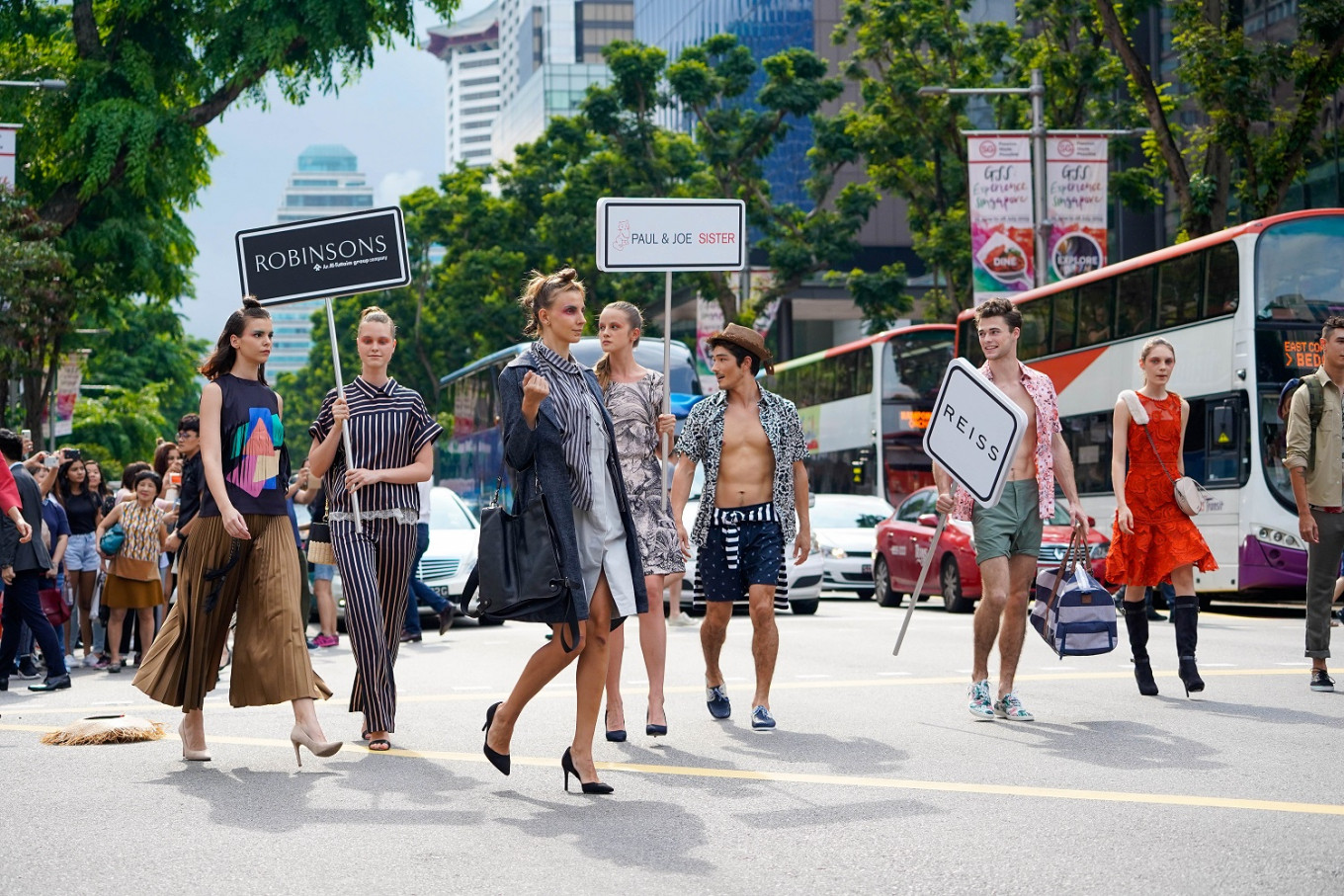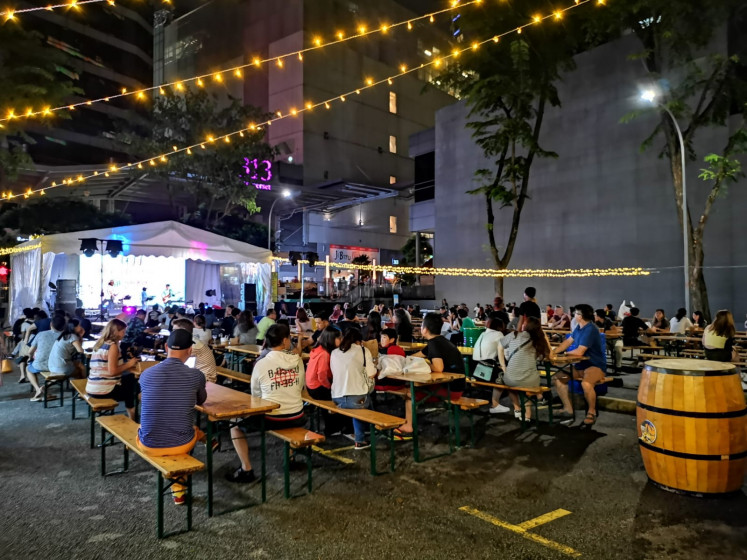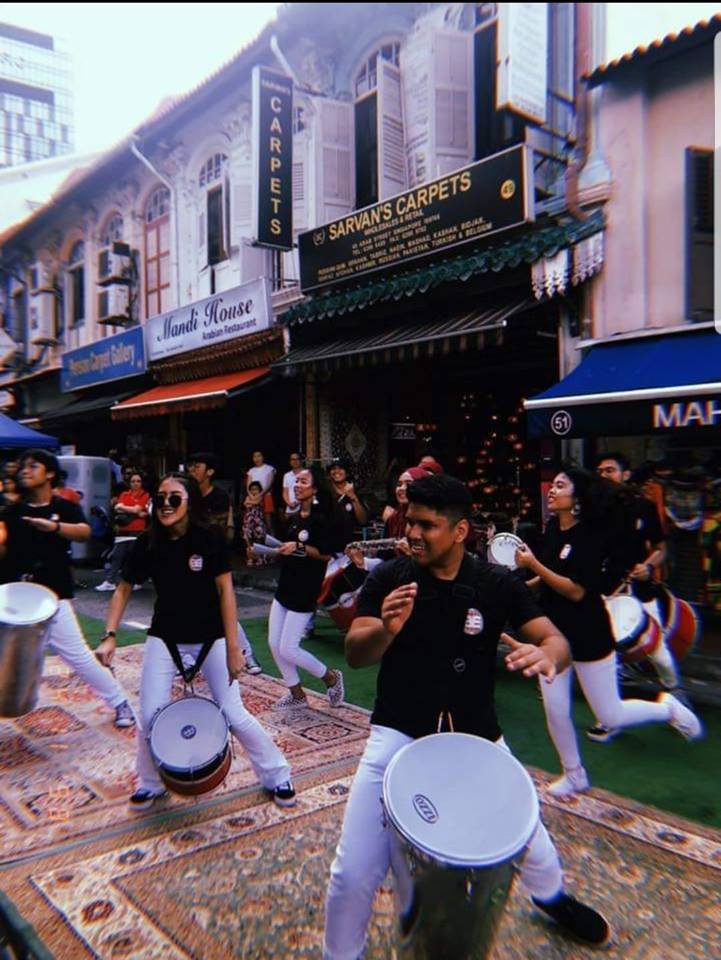Popular Reads
Top Results
Can't find what you're looking for?
View all search resultsPopular Reads
Top Results
Can't find what you're looking for?
View all search resultsExperience authentic Singapore at GSS
Change text size
Gift Premium Articles
to Anyone
T
he 2019 Great Singapore Sale (GSS) has more of an emphasis on cultural experience rather than a mere celebration of excessive consumerism.
For Maria, 28, going shopping is one of her preferred methods of treating herself after months of working at her office job.
Chatting under the shade of a tree in Singapore’s famous Orchard Road, she told The Jakarta Post that Singapore was an ideal shopping destination for those looking for great deals.
“Obviously, I still have to pay for the flight and hotel, but I consider it a holiday. Besides, if you spend enough, I think the price difference is enough to justify it anyway,” Maria said, pointing to the six shopping bags she was toting around that day.
Maria is one of the many Indonesians who love to travel to the city-state for a spot of retail therapy, lured by the plethora of international brands offering goods at a lower price, as well as cheap flights, which can be as low as Rp 500,000 (US$35.46) for a single trip.
The Great Singapore Sale, from June 21 to July 28, an annual island-wide sale event, promises even lower prices for both homegrown and international brands alike.
The event has been taking place for 25 years and its organizer the Singapore Retailers Association (SRA), has rebranded it this year as the Great Singapore Sale: Experience Singapore (GSS: ES) to offer visitors a touch of what it feels like to be truly Singaporean along with the usual discounts from retailers.
The GSS: ES kicked off with the Orchard Road Fashion Scramble on June 21, during which 300 dancers and models turned a busy intersection into a catwalk in a literal traffic-stopping fashion presentation.
Happy meals: The Grange Road carpark hosts a plethora of culinary treats and vendors during the 2019 Great Singapore Sale (GSS). (GSS: Experience Singapore 2019/-)Orchard Road also played host to The Great Singapore Street Pop Up until June 30, where 43 popup stores lined the road selling a range of goods from apparel to home decor. Culinary treats were available at the Grange Road carpark a stroll away, where shoppers could rest their weary feet while watching live music and movie screenings.
SRA executive director Rose Tong said that while the annual sale event was one of the top-five shopping festivals in the world, the focus this year was moving beyond simply shopping.
“This is what our shoppers and travelers do; they want an experience, not just to shop. It worked in the last 25 years, but we needed to move, be in trend,” Tong said, noting that the Great Singapore Sale term was still retained because as it had become a household name.
Meanwhile, Mark Yong, executive director of the Singapore Furniture Industries Council (SFIC), attributed the changing consumer preferences to the proliferation of e-commerce and online shopping, where people can shop from the comfort of their homes.
“In the past, people say that maybe furniture is a bit insulated from this because you can’t see how comfortable furniture is online. But we are seeing that in the last three years this is becoming less of the case,” Yong said.
“People are reading reviews and realizing that if they can get 50 percent off, they can deal with the fact that it’s not as comfortable as something they tried in person.”
The antidote to this, according to Yong, is the creation of experiences. By using measures such as customization and one-off bespoke products, retailers are luring consumers back into the bricks-and-mortar shops to see what the brand has on offer as well as the brand’s philosophy.
As for the food and beverages (F&B) industry, honorary secretary of the Restaurant Association of Singapore (RAS), Andrew Chan, said that changes were evident in the rise of online home delivery services like Deliveroo, GrabFood, and their ilk.
“An experience doesn’t necessarily have to be expensive. You can have a quick and casual experience that suits your time and convenience,” Chan said.
The most notable change in this year’s event is the inclusion of the diverse Singaporean culture to create new retail experiences.
For example, from July 5 to 14, the spotlight is on the historic Kampong Gelam district, known for being Singapore’s Malay-Muslim quarter.
Multicultural: The rebranded Great Singapore Sale (GSS) offers an authentic experience of the diverse Singaporean culture. (GSS: Experience Singapore 2019/-)Live music and theater performances will be conducted on Kandahar Street, while Baghdad Street will host the KG Home & Lifestyle Bazaar selling traditional handicrafts and curios. Precinct tours are also available throughout the period, conducted on bicycles or on Vespa sidecars.
Omar Alattas of the One Kampong Gelam (OKG) precinct association sees the development of shopping in three phases.
In the first phase, shoppers travel to a destination to buy with the intention of consuming. E-commerce plays a large part in the second phase, where it is heavily functional, according to Alattas.
“Online shopping has evolved where people are commenting and exchanging information via social media. What has happened is that online shoppers require experience to validate their purchases, to recommend things, and share,” Alattas said.
“Then comes the third phase, which is what we are offering in OKG, a communal atmosphere. Within that space and timeframe, we are launching singing festivals, dance, cooking schools and clothing being showcased by local designers,” he explained, adding that the experience immersed the consumer physically in the creation of the product and identity.
“You now as a shopper are no longer bound; you are creating value through your experiences,” he said.
INFO BOX:
The Jakarta Post was invited by the Singapore Retailers Association (SRA) to experience the Great Singapore Sale: Experience Singapore.













